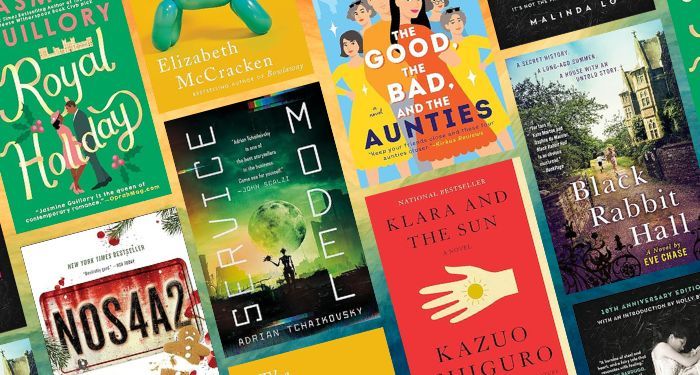Can you imagine telling a story so compelling and urgent, so wondrous and propulsive, that a person who originally planned to kill you instead lets you live another day, and then the next, and the next, all because the yarns are woven so well? In the broadest strokes, this is how Scheherazade, daughter of a high-ranking political advisor, avoided losing her head: oral storytelling. By beguiling the insecure and murderous ruler, Shahryār, with humorous and witty tales punctuated by well-placed cliffhangers which necessitated keeping her alive, this wily young woman presented one of the earliest examples of how a good story can take you on a journey that you never want to end—and could even save your life.
I grew up with oral storytelling, my imagination constantly enlivened by the manner in which my parents, aunts, and grandparents shared tales. I also come from a country where one of the main languages (Shona) is truly made for expressive verbal exchanges. Shona is ostentatious, slippery and singular. Solemn but also always in on the joke. Its range is wide and direct, with the pronouns that are most used largely describing “I” and “them”: the individual and the community.
When writing my novel, The Ones We Loved, I wanted the story to be one you not only read, but also listened to. I felt as though I heard my characters speaking to me, and I wanted that same sentiment for my readers. Oral storytelling is how my people passed on traditions, language, culture and beliefs. It still is. My whole world has been built around the voices I listened to and what they chose to reveal. Most pressingly, I’ve often learned about the experiences of those closest to me, both fantastic and heartbreaking, through oral stories framed as “something I once heard,” or “a friend once told me.”
As a reader, I don’t think I have consciously sought out authors whose way of writing carries the rhythmic form of orality that I am drawn to, however certain books have given me the feeling of sitting cross-legged before an orator, enthralled by their voice and the people being presented as characters. Every great story starts with good words, but it also begins with the right voice. Below, I have gathered eight books that embody the dynamism of oral storytelling in a number of ways.
Moon Witch, Spider King by Marlon James
The sequel to Black Leopard, Red Wolf, this book is, in my opinion, the most immersive of the duo. While both are astoundingly detailed in their world-building, Moon Witch, Spider King acts as a looking glass, tracing how everything came to pass, and why the characters from the first novel move as they do. Readers began the narrative with the character of Tracker, a hunter known for his remarkable ability to find anything or anyone no matter the distance. In the sequel, the character of Sogolon takes over, a skillful witch with a relentless survival instinct. This shift in narrative voice, centering an older woman and working back to her youth, is a choice that heightened the orality of the novel, framing each revelation as an audible experience that completely took over my body. Much like a really great song.
Bless the Daughter Raised by a Voice in Her Head by Warsan Shire
This collection contains the poem “Backwards,” which is one of the most evocative pieces of writing I’ve ever read. In it, the poet attempts to turn back time, and side-step grief. “The poem can start with him walking backwards into a room. He takes off his jacket and sits down for the rest of his life, that’s how we bring Dad back.” Shire is deliberate with her words and use of punctuation, making every line its own story, and letting each pause shift the tone of this world that she’s made into something you can read in your head, or whisper to yourself on public transit.
Torto Arado (Crooked Plow) by Itamar Vieira Junior
“When I took the knife out of the suitcase, wrapped in an old and dirty piece of material, with dark stains and a knot in the middle, I was barely seven years old.” From the first sentence of Torto Arado, we are privy to the happenings of the main character, listening in while looking back. It’s the voice of a young woman recounting the moment when her life and that of her sister changed dramatically because of curiosity. Their childhoods are split in two—before opening the suitcase and after opening the suitcase. Like any good story, this book takes its time to unravel using short chapters as though cognizant of the fact that a narrator will need time to stop, drink some water, and take a breath before continuing. As it reaches its end, a singular voice emerges to tell the story as both a participant and an outsider, adding clarity where needed. It’s a mesmerizing turn.
Jazz by Toni Morrison
Morrison’s writing in Jazz is like a bayou—dense, humid, breathless and mysterious. You want to know what’s in the swampy water and might even be brave enough to dip your hand in. A novel about two people who moved to Harlem in love, they slowly discover how the pace of a city can interrupt the steadiness of a union. Their love is also haunted by the ghost of a murdered mistress and this betrayal unfolds like a secret, which I’m not certain I was told completely. It’s a stunning book, and the question that stayed with me after reading wasn’t “Where did we go?” but “Why did we make it here?”
Lagoon by Nnedi Okorafor
Told as a series of vignettes, this novel outlines the genesis and impact of one incredible event involving alien life touching ground in the frenetic city of Lagos, Nigeria. With corrupt military men, a brilliant scientist and her precocious children, reluctant sex-workers, and one particularly moving portrait of a lost child, I found myself turning down my ambient music so I could better hear the story. It moves at a fast pace that only quickens as the characters grow more desperate, so by the end you are holding your breath and wondering if this event truly could have happened in just a few hours.
If an Egyptian Cannot Speak English by Noor Naga
An inventive book that is outstanding in its reaching. Reaching past language for something more complete and a little terrifying. When I first started reading, it was a little challenging to find a pace or something to hold onto, but I kept going because Naga made it necessary to trust her voice. And I’m glad I did. This is a love story between a boy and girl that demonstrates all the ways love can make us tender, obtuse, cruel, envious, courageous and imaginative. The main characters are foreign to each other in obvious and subtle ways, and both try to lessen the chasm between them that’s defined by social class and gender norms. The character of the grandmother will always stay with me because she has one of the most beautiful lines in the book, that is delivered with so much love. I won’t spoil it here, just take my word for it.
Le Baobab Fou (The Abandoned Baobab) by Ken Bugul
It’s rare to find intimate work that focuses on the life of a young African woman leaving her country for the first time and learning how to remember herself and her home. Most often this narrative of departure and memory has been portrayed via the adventures of African men who left their homes in the 60s and 70s to build new roots in the countries that had previously colonized their own. Bugul knew her voice would be one of the few prodigal women, and so she chose to tell the story as if sharing it with a neighbor over a meal. The book is about a girl’s journey into womanhood, and like most work written by Black women, while writing about the self, Bugul inadvertently ended up writing about the communities she loved, left behind, and later returned to.
We Need New Names by NoViolet Bulawayo
I began to miss this book while I was still reading it. It was such a strange feeling, but one I recognized as being that thing that lives between anticipation and uncertainty. I didn’t yet know how the book would end, but as all stories do, it would finish, and I wondered where I would once again find these characters who’d brought me into their fold. The lead character, Darling, spends her time wandering through town with her friends looking for amusement and food. Together they do as friends do—share dreams, tease each other and ask questions about life’s large themes like death and love. As they grow older, readers see how their maturity changes their connections to each other and the place they call home. This novel is patient with our ignorance and yet also undistracted by it. The story continues, the characters transform and the reader’s sole responsibility is to witness and listen.
The post 8 Books That Capture the Feeling of Oral Storytelling appeared first on Electric Literature.







.jpg.webp?itok=1zl_MpKg)





 Bengali (Bangladesh) ·
Bengali (Bangladesh) ·  English (United States) ·
English (United States) ·